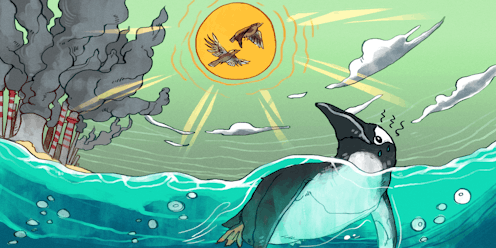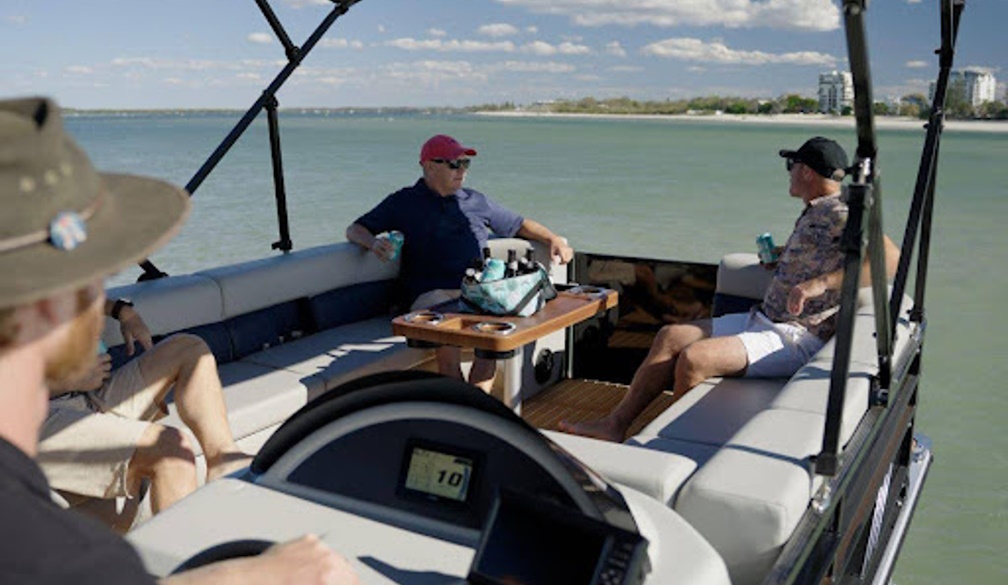Good science doesn't guarantee public acceptance – diverse evidence may help
- Written by Arthur Kary, PhD Candidate, School of Psychology, UNSW

It takes more than just robust science to convince people to take on a certain point of view – consider topics such as vaccination, genetically modified foods and climate change.
Our recent study looked how at the balance of evidence can shape the likelihood that people are convinced by it – and in particular how a psychological phenomenon known as “the diversity effect” plays out in assessing scientific evidence.
Read more: What might appear to be common sense is not always based on scientific evidence
Here’s an example of the diversity effect – consider the following two arguments. (A bit of information first: a sesamoid bone is a bone embedded in a tendon or muscle – but you don’t need to know this to follow these arguments).
Argument 1 – Sparrows have sesamoid bones. Robins have sesamoid bones. Therefore, all birds have sesamoid bones.
Argument 2 – Sparrows have sesamoid bones. Penguins have sesamoid bones. Therefore, all birds have sesamoid bones.
You find the second argument more convincing, right?
This preference is the diversity effect. It’s where people believe that conclusions supported by “diverse” evidence (that is, evidence from very different sources) are more persuasive than conclusions supported by non-diverse evidence.
Sparrows and penguins are very different, so it stands to reason that something that’s true of both may be true of all birds. By comparison, sparrows and robins are pretty similar in other respects, so things that are true of them may not generalise to lots of other birds.
When evidence gets complex
Existing studies of people’s reasoning have focused on simple arguments like the ones above. But many consequential real-world arguments, such as those from the sciences, are more complex.
Evidence can be gathered using different measurement tools, or different experimental designs. Even conclusions based on a single measurement can be supported by evidence from different sources.
Consider the case of climate change: evidence such as temperature readings can be drawn from different geographical locations, or from different time periods.
While having many different kinds of evidence supporting a scientific argument strengthens it in the eye of the scientist, how can we communicate the strength of scientific theories to the general public?
We know from the recent history of climate science communication that having a strong, well-supported theory doesn’t necessarily translate into strong public belief in that theory.
Read more: Who are you calling 'anti-science'? How science serves social and political agendas
Yet public acceptance of climate science is important as we need public support to ensure that effective policies are put in place to mitigate climate change.
So perhaps we can turn to the cognitive psychology literature to help us find simple and effective ways to present scientific arguments to non-experts.
This brings us back to the diversity effect. We wanted to see whether the diversity effect also holds for non-expert evaluation of real-world scientific arguments.
Our Study
We examined whether lay people used evidence diversity to reason about arguments in two domains where science has an important role in informing public policy: climate science and public health.
We manipulated whether the evidence presented to lay reasoners (people with little formal training in either discipline) differed on a number of characteristics:
- geographical diversity – evidence taken from different parts of the world (e.g. Australia and the UK) or similar parts of the world (e.g. Australia and New Zealand)
- socio-cultural diversity – e.g. Australia and the UK, or Australia and Papua New Guinea), or
- temporal diversity – evidence taken from the 1990s and the 1950s, or both pieces of evidence from the 1990s.
Using a method that allowed us to measure the independent contributions of each kind of diversity to argument evaluations, we found that the diversity effect does indeed hold. But we found that people are selective about how much they attend to each source of diversity.
For example, non-experts thought a conclusion about sea levels rising across the globe was better supported by evidence taken from distant geographical locations (e.g. Australia and the UK) over geographically nearby locations such as (Australia and New Zealand).
Read more: Australians' attitudes to vaccination are more complex than a simple 'pro' or 'anti' label
But they weren’t sensitive to whether the socio-cultural dimension of the argument was diverse or not – that is, their evaluations of these arguments weren’t influenced either way whether evidence came from the socio-culturally similar Australia and UK or the socio-culturally dissimilar Australia and Papua New Guinea.
In contrast, for an argument about use of modern contraception rising across the world, non-experts were more sensitive to socio-cultural diversity than geographical diversity. They were more convinced by an argument featuring Australia and Indonesia than an argument featuring Australia and Canada.
Better science communication
To our knowledge, we are the first researchers to demonstrate that the diversity effect generalises to non-expert evaluations of scientific arguments. We argue that science communicators can apply this technique to get their message across quickly and effectively.
Our study suggests that emphasising evidence that comes from different sources convinces non-experts more than presenting evidence coming from similar sources.
While we have presented results from climate science and public health arguments, the method we applied in our study could also apply for other scientific topics. To test this, researchers could run focus groups to see what kinds of diversity matter for non-experts in their topic area.
An import caveat of our research is that good science communication doesn’t guarantee public acceptance. In highly politicised topics such as climate science or genetically modified foods ideological factors can have an influence too.
Read more: Perceptions of genetically modified food are informed by more than just science
Nevertheless, to give the best chance for science to break through these barriers, we need to present our arguments to the public in the most convincing ways we have available.
And to do that, science communicators can turn to cognitive psychology research to take advantage of basic preferences like the diversity effect.
Authors: Arthur Kary, PhD Candidate, School of Psychology, UNSW


















